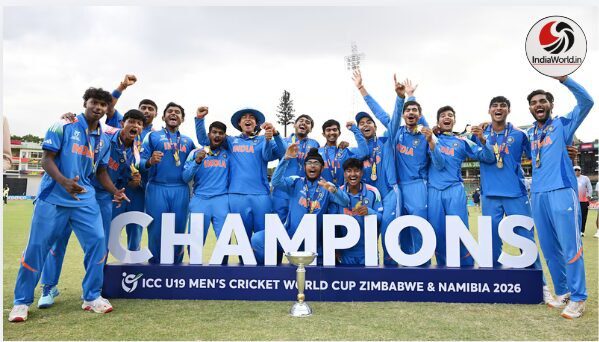Long-Term Unemployment Among Indian Graduates: What’s Causing the Crisis?
Long-term unemployment among Indian college graduates is becoming a serious concern in 2025. Despite holding degrees, lakhs of students are unable to secure stable jobs due to delayed government notifications, skill gaps, and shrinking private sector opportunities. With rising competition and outdated recruitment systems, the struggle for employment is pushing many into uncertainty. This article explores the reasons behind the crisis and what students can do to adapt.

Degrees Without Jobs: A Harsh Reality for Indian Youth
In India, a college degree was once considered a ticket to a secure future. But today, that promise is fading. According to the Economic Survey 2023–24, only 51% of Indian graduates are considered job-ready. The rest face long-term unemployment, underemployment, or are stuck in endless cycles of exam preparation—especially for government jobs like State PSCs, UPSC, SSC, and banking.
Real Voices from the Ground
As a senior journalist managing education and job platforms, I interact daily with thousands of students through YouTube, WhatsApp, and Telegram groups. Many are preparing for Telangana and Andhra Pradesh PSC exams, but face delays in notifications and recruitment cycles. Some have been waiting for years, studying full-time without income, and losing hope..
One student told me, “I’ve been preparing for Group 1 and 2 exams for three years. No notifications, no clarity. My parents are worried, and I’m starting to doubt myself.”
Another said, “I have a B.Tech degree, but I’m working part-time in a call center. I feel stuck.”
These stories aren’t rare—they’re the norm.
What’s Causing Long-Term Unemployment in India?
Several interconnected factors are driving this crisis:
- Delayed Government Recruitment: State PSCs and other government bodies often delay notifications, leaving aspirants in limbo.
- Skill Gaps: Many graduates lack practical, industry-relevant skills. Only 2.2% of youth receive formal vocational training.
- Private Sector Saturation: The IT and startup sectors have slowed hiring due to global economic pressures and automation.
- Overdependence on Degrees: Students focus on academic qualifications but neglect soft skills, internships, and hands-on experience.
- Mismatch Between Education and Industry Needs: Curricula are outdated and disconnected from real-world job requirements.
The Overqualification Paradox
Many Indian graduates are rejected for entry-level roles because they’re “overqualified.” Employers fear they’ll leave quickly or demand higher pay. Ironically, the very degrees that were supposed to open doors are now barriers.
This is especially true for engineers and MBA holders. A recent report showed that 83% of engineering graduates and 50% of MBA graduates didn’t receive job offers after graduation.
Automation and AI: A Double-Edged Sword
While India is embracing digital transformation, automation is replacing many mid-level jobs. AI tools now handle tasks in customer service, HR, and even legal documentation. This reduces demand for traditional roles and increases competition for tech-savvy positions.
Graduates who haven’t upskilled in areas like data science, cybersecurity, or cloud computing are being left behind.
Skills vs Degrees: What Employers Want
The job market is shifting from degree-based hiring to skill-based hiring. Companies now prefer candidates with:
- Coding and programming skills
- Digital marketing expertise
- UX/UI design knowledge
- Data analytics and visualization
- Communication and leadership abilities
Online platforms like Coursera, Skill India, and NSDC offer affordable courses, but awareness and adoption remain low.

Impact on Mental Health and Aspirations
Long-term unemployment isn’t just an economic issue—it’s a psychological one. Many students report anxiety, depression, and loss of self-worth. Social pressure, financial stress, and uncertainty about the future are taking a toll.
Some delay marriage, avoid social gatherings, or feel ashamed to talk about their situation. The emotional burden is real and growing.
Government Response: Is It Enough?
While initiatives like Skill India, PMKVY, and Atmanirbhar Bharat aim to boost employability, implementation remains patchy. Coordination across ministries is weak, and many students don’t know how to access these programs.
There’s an urgent need for:
Incentives for startups and MSMEs to hire fresh graduates
Timely and transparent government recruitment
Integration of skill training in college curricula
Mental health support for unemployed youth
Incentives for startups and MSMEs to hire fresh graduates
What Can Students Do?
If you’re facing long-term unemployment, here are some practical steps:
- Upskill: Learn in-demand skills through platforms like Coursera, Udemy, or NSDC.
- Intern or Volunteer: Gain experience through internships, even unpaid ones.
- Freelance: Offer services in writing, design, coding, or tutoring.
- Network: Use LinkedIn, Twitter, and alumni groups to connect with professionals.
- Stay Updated: Follow reliable job portals and Telegram channels for notifications.
- Adaptability is your biggest asset in today’s unpredictable job market.
The Future of Work in India
India’s workforce is young—65% under the age of 35. But to harness this demographic dividend, we need a shift in mindset. Degrees alone won’t cut it. The future belongs to those who combine education with skills, agility, and real-world experience.
Colleges must evolve. Students must diversify. And policymakers must act.

Read also || SSC CGL 2025 Exam Disrupted: Glitches, Cancellations

You can have short product description here. It can be added as and enable/disable toggle option from which user can have control on it.








